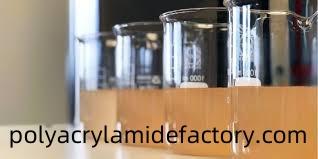In hydraulic fracturing operations, polymers play a vital role in improving the properties and performance of fracturing fluids. As a key component of Fracturing Fluid Chemical formulations, polymers enhance fluid viscosity, stability, and proppant transport, making the fracturing process more efficient and effective.
The Role of Polymers in Fracturing Fluids
Polymers are long-chain molecules that increase the viscosity of fracturing fluids without significantly increasing density. This increased viscosity helps suspend and transport proppants deep into the fractures created in the reservoir, keeping the fractures open to allow hydrocarbons to flow.
| Polymer Function | Effect in Fracturing Fluid |
|---|---|
| Viscosity enhancement | Improved proppant suspension and placement |
| Fluid stability | Resistance to degradation under high temperature and pressure |
| Friction reduction | Easier pumping and lower energy consumption |
| Water retention | Maintains fluid consistency for prolonged fracturing jobs |
Polymers also contribute to reducing fluid loss into the formation, protecting the reservoir from damage and improving overall recovery.
Applications and Benefits
-
High-temperature reservoirs: Specialized polymers maintain performance under extreme conditions.
-
Water-sensitive formations: Polymers minimize water invasion and formation damage.
-
Extended fracturing operations: Enhanced fluid stability allows longer pumping times without loss of effectiveness.
Promote Polyacrylamidefactory
For reliable, high-quality polymers tailored for fracturing fluid chemistry, Polyacrylamidefactory is your trusted partner. We produce advanced polymer solutions designed to meet demanding oilfield conditions, ensuring enhanced fracturing performance and operational efficiency.
Discover customized polymer products and technical support for your fracturing fluid needs at:
https://www.polyacrylamidefactory.com



